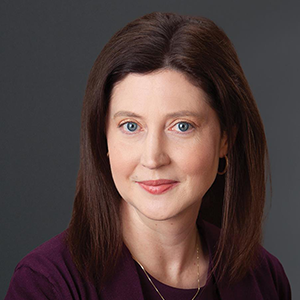Called to Service: Justin McCabe

If you’re just out of college and unsure of what to do with your life, Justin McCabe has a suggestion: join the Peace Corps.
After graduating with a degree in business from Mercyhurst University, McCabe, Shady Drive West, took a position teaching English in Japan. He enjoyed living in another country and culture, so at the age of 25 he applied to the Peace Corps, requesting a posting in Asia. Instead, he was sent to Mozambique in southern Africa.
Assigned to a teacher training institute in the provincial capital of Xai-Xai, McCabe trained residents in teaching English as a Second Language from 2005 to 2007. He lived for the first six months in a house with several other teachers from different parts of the world and grew accustomed to sporadic electricity, the threat of malaria, and a lack of western foods, while living on a stipend of about $40 per month.
It was a life-changing experience. “It just completely opened my eyes to new ways of living,” he said.
McCabe’s change in perspective began when he lived in Japan and led several trips to southern India to build houses for Habitat for Humanity. “We built wells and things like that and helped out with an eye care clinic,” he said. “It was really my first introduction to poverty and the third world, and how a lot of people in the world live. Just getting water and food and shelter is a struggle, day in and day out.” At the time he was in Mozambique, AIDS was ravaging the population as well.
The Peace Corps gave him three months of preparation for the job, including intensive language training in the official language of Portuguese (Mozambique is a former Portuguese colony), and the local dialect.
McCabe coped with a shortage of resources for his classes. “It forced me to be very creative while teaching a particular topic,” he said. “If I didn’t have a book with a picture of a tree, I’d say, ‘Let’s go outside and look at trees.’”
Although he wasn’t the only non-African in the town, he was treated royally by his students and other local residents.
“I remember the first time we needed water for cooking and cleaning and drinking. We had to hike a mile to the well and hand-pump a five-gallon bucket of water and carry it back. That was the first and probably only time I did that because when people realized, oh, this is a teacher from the U.S. coming in—we’re not going to let him carry his own water. They treated me like a VIP!”
After a new school opened that had housing for both teachers and students, McCabe lived on campus. “So I got to wake up at 4 in the morning, which my entire school did, to go exercise and run before the sun came up and it got hot.” The school had solar-heated water and showers; before that, he’d had to make do with bucket baths. “All of my Peace Corps colleagues who lived elsewhere were jealous,” he reported. “They loved coming to our place. They called us the Posh Corps!”
Once out of the safety of the town, however, there were dangers. The roads were bad and cars often broke down. Mozambique had suffered through a devastating civil war in the ‘90s, and the results—broken infrastructure, traumatized residents—were still very much in evidence. He was warned not to stray from the path when walking in the countryside, because there were still live land mines buried nearby.
He prizes the relationships he made while he was in Mozambique, both with his students and the other teachers, many of whom were from other parts of the world. “Periodically I’ll connect with some of my former students,” he said. “It’s definitely rewarding to see how a lot of them are now in leadership positions or professors themselves.”
After McCabe returned to Pittsburgh in 2007, he earned a master’s degree in international development from the University of Pittsburgh. He now works for the nonprofit Performance Review Institute. Pitt is also where he met his wife, Beth, a photographer for Mt. Lebanon Magazine; they have a 6-year-old daughter and a 2-year-old son.
When he reflects on his time in the Peace Corps, McCabe realizes that serving in Mozambique satisfied something in his soul.
“I wanted to understand more deeply how these people live and really get to know the culture and how they do things,” he said. “So yes, I’d recommend it to anyone, especially if they have a skill to offer. Having someone come in and give of their time and knowledge and resources, it really makes a difference.”





